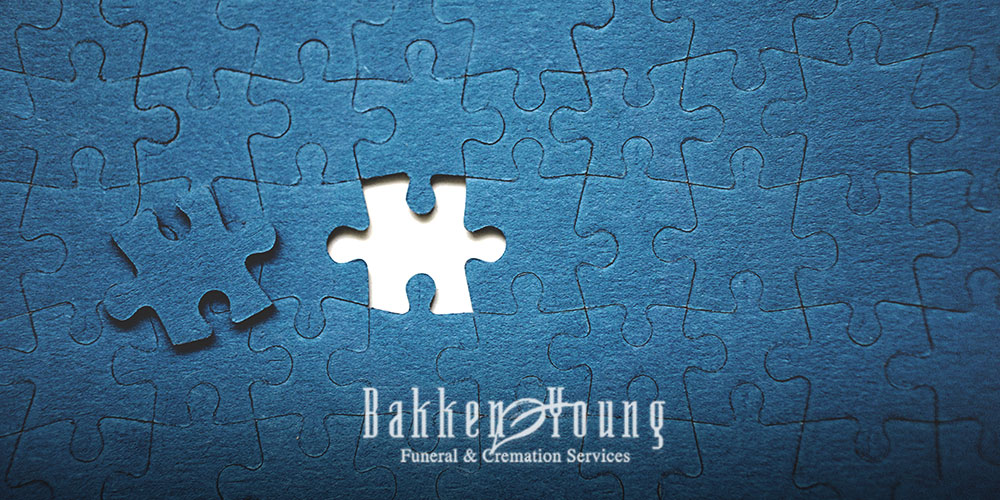By Chaplain Julia Rajtar, MAPS, BCC
Have you ever tried to put a puzzle together only to find that there is one missing piece? You might go in search of that missing piece or try to make something fit that may look close. You may realize that a piece is missing, and this puzzle will always be incomplete.
Grief is like an incomplete puzzle, we can search and search for something to fit into the space. We can test out pieces as we move forward in our lives knowing nothing will quite fit like the missing piece. We can adapt and adjust as we try to squeeze a piece into the space which creates discomfort, especially early on in our loss. We can try other pieces and realize that there is no other piece that fits, and we eventually learn to live with a missing piece, knowing it cannot be found or replaced.
A bereaved husband spoke of his wife of 30 years who died 18 months ago. The absence of her physical presence in family activities often caused what he called a “grief ambush,” or as someone else stated, “the other shoe dropped.” He said that these attacks of grief are less frequent and less intense than initially after her death. Yet it is still so hard to wrap his mind around the fact that he will never see her again, hear her say his voice, nor touch or hug her. “I feel like a piece of the puzzle is missing in my life picture and I can’t find it.”
Finding The Missing Puzzle Piece In The Midst of Grief
It is natural to feel and think this way. William Worden, Ph.D. in his Tasks of Mourning offers that one of the tasks calls us to “accept the reality of the loss.” The oscillating that this husband is doing as he remembers and mourns the death and absence of his wife as life continues, is part of the tasks. Therese Rando, Psychologist in her 6 R Process of Mourning says that mourning is an active, ongoing phase that invites us to accommodation. As we Recognize the loss, React to the separation, and Recollect and re-experience our deceased loved one and our relationship, we move in and out of the first three phases of the process of mourning, trying to find that missing piece.
Give yourself some time, space and grace, as you begin to discover what, if anything, will fit in that space. It’s ok to stress and search for the missing puzzle piece, sometimes we need to grow into learning to live with the empty space of the puzzle.
Be patient toward all that is unsolved in your heart. Try to love the questions themselves like locked rooms and like books written in a very foreign tongue. Do not now seek the answers, which cannot be given you because you would not be able to live them. And the point is, to live everything. Live the questions now.
Rainer Maria Rilke
Sources:
Williams, Litsa, “Rando’s Six R Process of Mourning,” What’s Your Grief, Rando’s Six R Processes of Mourning – Whats your Grief, accessed 2/10/23.
Worden, William PhD, Grief Counseling and Grief Therapy, Fifth Edition: A Handbook for the Mental Health Practitioner – Grief Counseling Handbook on Treatment of Grief, Loss and Bereavement, Springer, 2018.
Based on Worden, J.W. (2009), “Worden’s Four Tasks of Mourning,” Our House Grief Support Center,
https://www.ourhouse-grief.org/grief-pages/grieving-adults/four-tasks-of-mourning/, accessed 2/10/23.


Add Comment